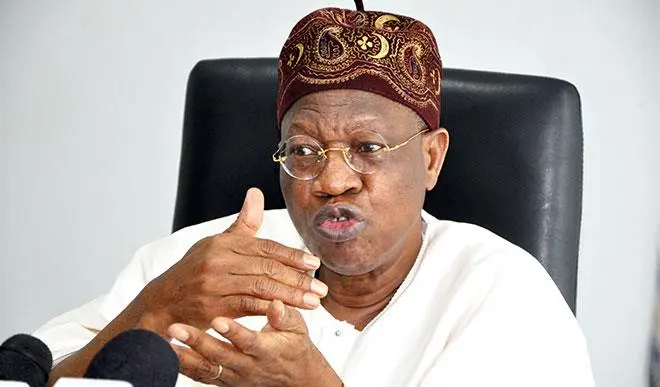Nigeria’s Minister of Information and Culture, Lai Mohammed, has claimed that President Muhammadu Buhari actually delivered on his pledge to leave behind a legacy of free, fair and credible elections through the conduct of the 2023 election.
Mohammed made this known in Washington DC during his official engagements with some international media organisations.
He went on to add that Buhari lost his state, Katsina, during the presidential election to the Peoples Democratic Party and the President-elect, Bola Tinubu, also lost his state, Lagos, to the Labour Party, which was enough proof that the elections were credible.
The minister is in Washington to engage with international media organisations and think tanks on the just-concluded 2023 polls.
He has so far engaged respectively with the Washington Post, Voice of America, Associated Press and Foreign Policy Magazine.
The minister said in fulfilment of the President’s pledge to restore sanity to the electoral process, he resolved that he would not confer a special advantage on any political party, including the ruling All Progressives Congress (APC), during the election.
He said during the past elections, the President ensured that nobody used the security agencies to rig the election in his favour but created a level-playing ground for the elections to take place.
Read Also: Treason Allegation: Buhari’s Govt, Peter Obi Trade Words
‘Proof of this resolution is that the President’s party lost the presidential election in Katsina, his home state.
‘Equally, the President-elect, Bola Tinubu, lost in his state, Lagos, while the Chairman of the Party, Abdullahi Adamu, lost in Nasarawa state to the Labour Party.
‘The Director-General of the Campaign Organisation of our party also lost to PDP in Plateau State.
‘Nothing gives this election more credence than those facts because there was no rigging in states where our bigwigs come from,’ he said.
The minister added that APC lost in the four states with the highest number of votes in the elections – Katsina, Kano, Kaduna and Lagos even when they were the ruling party’s controlled states.
Mohammed said the allegations of fraud being bandied by the opposition and naysayers did not add up.
According to the minister, the controversy was generated because of the inability of INEC to upload the results of the presidential election in real time.
He said the controversy was absolutely unnecessary though it had been the fulcrum of the argument of the naysayers that elections were flawed.
INEC had come under fire over its inability to upload results immediately on its Result Viewing portal during the presidential and National Assembly elections held on February 25.
Mohammed, however, said the conclusion by the opposition and naysayers was based on ignorance of the role and functions of IReV.
He said IReV, a platform whereby election results at the polling level are uploaded, was not a tool for collation of election or to transmit results electronically.
‘Under our laws today, management of election results is manual and the court has ruled that INEC has the exclusive right to determine the mode of election, its collation and transmission.
“What happened on the 25th of February was that INEC observed that the results of the presidential elections were not being viewed.
“INEC, suspecting cyber attack, withheld the uploading of the results in order to preserve the integrity of the data. It immediately proceeded to float an alternative platform while asking its technicians to investigate what happened to its original portal.”
The minister explained further that it took about 9pm for the alternative portal to start working. He said as soon as the original portal started working, the results were viewed from the two platforms.
‘It is unfortunate that this is what the opposition are relying on to say the elections were rigged. So far, none of the political parties has come out to say that what is on Form EC8A is different from what was uploaded on IREV,’ he said.
Speaking on delay in delivering election materials to certain areas, the minister said it was difficult in a country as diverse and complex as Nigeria for election materials to arrive at the same time everywhere.
He said with 176,846 polling units scattered all over the country with different topography, it would be difficult to deliver the materials simultaneously.

